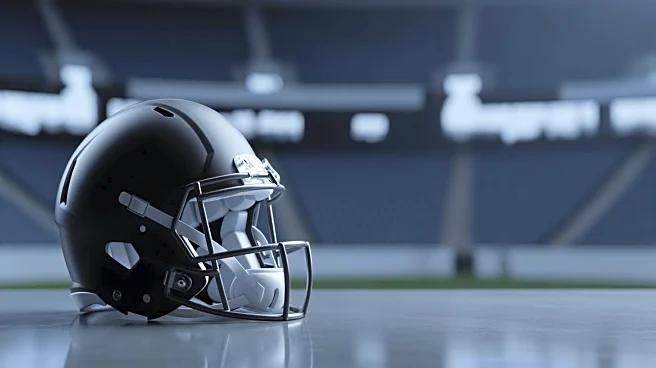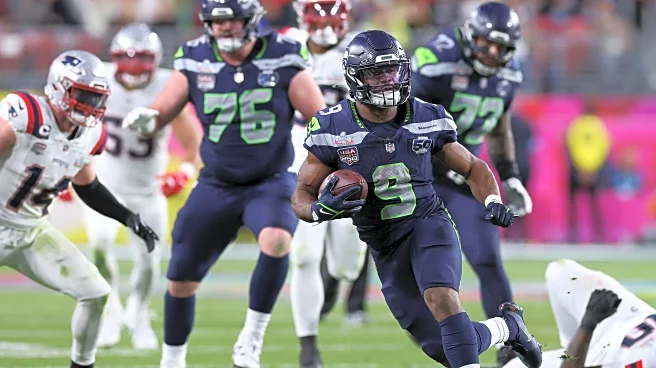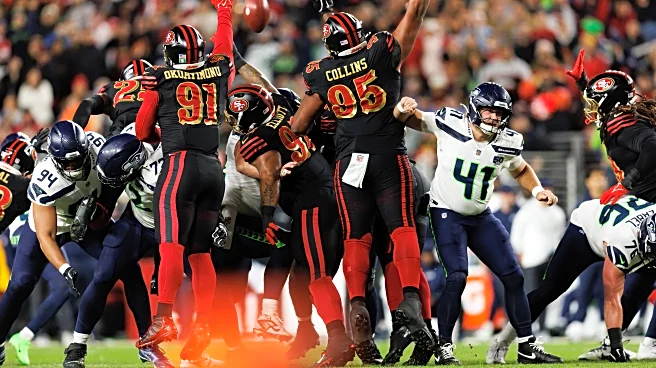What's Happening?
The NFL is grappling with mental health issues following the tragic suicide of Marshawn Kneeland, a defensive end for the Dallas Cowboys. Kneeland, aged 24, died from a self-inflicted gunshot wound after
a police chase and a failed wellness check. His death has reignited discussions about the mental health challenges faced by NFL players, including the impact of concussions and the pressures of a short-lived career. The league has a history of similar tragedies, with several players taking their own lives, often linked to chronic traumatic encephalopathy (CTE) and other mental health struggles.
Why It's Important?
Kneeland's death underscores the urgent need for improved mental health support within the NFL. The league has implemented measures like the NFL Life Line and mandated mental health clinicians for teams, but these incidents highlight gaps in the system. Addressing mental health is crucial not only for player well-being but also for the league's reputation and the safety of its athletes. The ongoing issue of CTE and its link to repeated head injuries remains a significant concern, prompting calls for more comprehensive research and preventive measures.
Beyond the Headlines
The broader implications of this crisis extend beyond the NFL, reflecting societal challenges in addressing mental health. The stigma surrounding mental health issues, particularly in high-pressure environments like professional sports, can hinder athletes from seeking help. Kneeland's case may prompt a reevaluation of how mental health is approached in sports, potentially leading to policy changes and increased awareness. The NFL's response to this crisis could set a precedent for other sports leagues facing similar challenges.










